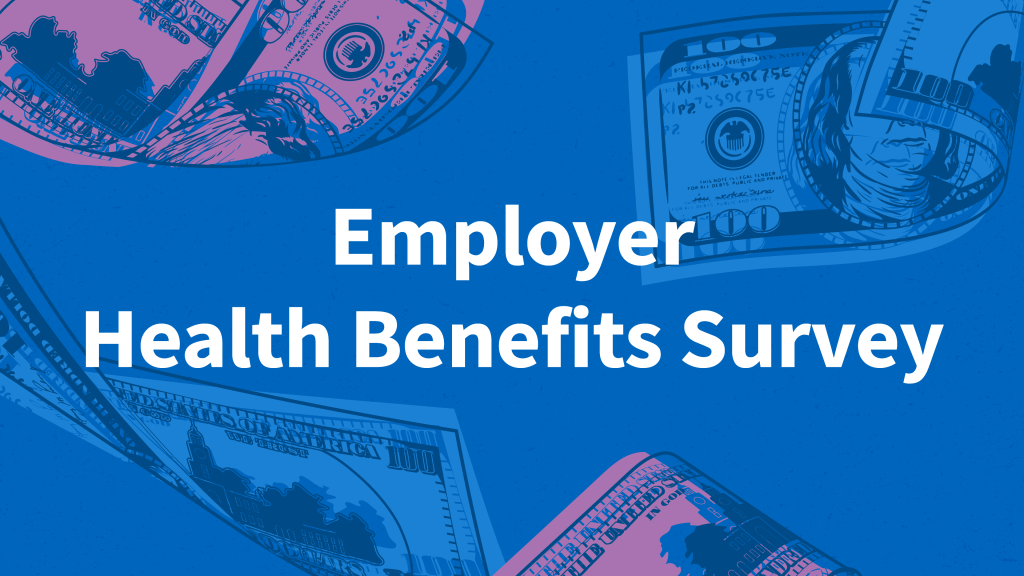The Potential Side Effects of Halbig
The Halbig case, if it prevails, would have far-reaching side effects on the Affordable Care Act’s employer mandate and the functioning of the individual insurance market.
The independent source for health policy research, polling, and news.
KFF’s policy research provides facts and analysis on a wide range of policy issues and public programs.
KFF designs, conducts and analyzes original public opinion and survey research on Americans’ attitudes, knowledge, and experiences with the health care system to help amplify the public’s voice in major national debates.
KFF Health News is a national newsroom that produces in-depth journalism about health issues and is one of the organization’s core operating programs.
KFF has conducted this annual survey of private and non-federal public employers with three or more workers since 1999. The survey tracks trends in employer health insurance coverage, the cost of that coverage, and other topical health insurance issues. Findings are based on a nationally representative survey of public and private employers with three or more employees, including those who respond to the full survey and those who indicate only whether or not they provide health coverage. Browse the reports
The Halbig case, if it prevails, would have far-reaching side effects on the Affordable Care Act’s employer mandate and the functioning of the individual insurance market.
June Poll Finds No Change in Public's Overall View of the Affordable Care Act Most in Military Households Say VA Problems Are Systemic and Care Not As Good As What Other Americans Receive As many employers begin to expand their wellness programs under new guidelines set forth by the Affordable Care Act (ACA), the latest…
As many employers begin to expand their wellness programs under new guidelines set forth by the Affordable Care Act (ACA), the latest Kaiser Health Tracking Poll finds workers oppose programs that make them pay higher premiums if they fail to participate or meet specific health goals. Overall public opinion of the ACA remains about the same as it has for the last several months, with a somewhat higher share of the public continuing to express an unfavorable view of the law (45%) than a favorable one (39%).
This chart looks at the U.S. Supreme Court decision in the Hobby Lobby case involving the Affordable Care Act's (ACA) contraceptive coverage requirement. It examines how the Court answered four key questions in the case.
One of the most politically polarizing elements of the Affordable Care Act (ACA) is the law’s requirement that new private health insurance plans cover prescription contraceptives and services, including all methods approved by the Food and Drug Administration.
The Supreme Court is expected to reach a decision by the end of June, 2014 on the cases brought forth by Hobby Lobby and Conestoga Wood Specialties, two for profit corporations challenging the ACA’s contraceptive coverage requirement. The plaintiffs contend that the requirement that they include coverage for certain contraceptive services (emergency contraceptive pills and intrauterine devices) in the insurance plans “substantially burdens” both the corporation’s and the owners’ religious rights. During the arguments, several of the justices discussed the extent to which the corporations did or not did not have a choice in offering coverage to their workers. In this brief, we explore some of the factors influencing coverage decisions and possible consequences for women and employers given possible Supreme Court decision options: either upholding the contraceptive coverage requirement, or in favor of Hobby Lobby.
A new Kaiser Family Foundation issue brief explores some of the factors influencing employers’ coverage decisions and possible consequences for employers and workers that could arise from possible Supreme Court decisions in the cases brought by Hobby Lobby and Conestoga Wood Specialties, for-profit corporations challenging the Affordable Care Act’s requirement to cover contraceptive services and…
A new Kaiser Family Foundation report examines the current role and future outlook of employer-sponsored retiree health benefits for pre-65 and Medicare-eligible retirees.
This issue brief reviews recent trends and developments in employer-sponsored retiree health coverage and examines the impact of recent legislation, such as the Medicare drug benefit and the Affordable Care Act (ACA) on retiree health coverage. The report describes leading strategies employers have been pursuing or considering to limit costs for retiree health benefits. In addition, the report considers the potential implications of proposals aimed at reducing federal spending for retiree health coverage and costs.
On March 25th, the Supreme Court will hear two cases brought by for-profit corporations challenging the ACA’s contraceptive coverage rule on religious grounds. These two corporations are Hobby Lobby, a national chain of craft stores owned by a Christian family and Conestoga Wood Specialties, a cabinet manufacturer, owned by a Mennonite family. Beyond the impact on the ACA and contraceptive coverage, the Court’s decision may have implications for religious rights of employers and employees, as well as corporate and civil rights laws. This brief examines three fundamental questions raised by some of the 84 amicus briefs that have been submitted to the Court.
© 2026 KFF
